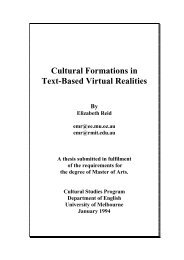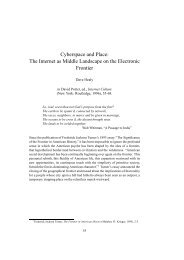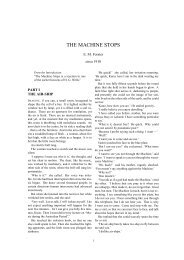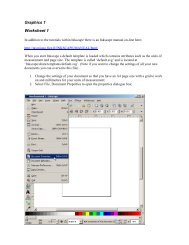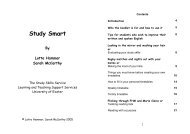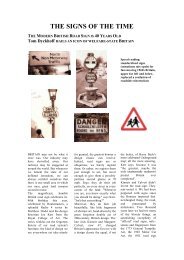PDF - The Metaphysics of Virtual Reality - University of Exeter
PDF - The Metaphysics of Virtual Reality - University of Exeter
PDF - The Metaphysics of Virtual Reality - University of Exeter
You also want an ePaper? Increase the reach of your titles
YUMPU automatically turns print PDFs into web optimized ePapers that Google loves.
nologies. He saw in writing technology a clue to the human relationship to language<br />
and to our awareness as beings embodied in the world:<br />
Not by chance does modem man write "with" the typewriter and "dictates"the<br />
same word as "to invent creatively” [Dichten]—"into" the machine.<br />
This "history" <strong>of</strong> the kinds <strong>of</strong> writing is at the same time one <strong>of</strong> the major<br />
reasons for the increasing destruction <strong>of</strong> the word. <strong>The</strong> word no longer<br />
passes through the hand as it writes and acts authentically, but through the<br />
mechanized pressure <strong>of</strong> the hand. <strong>The</strong> typewriter snatches script from the<br />
essential realm <strong>of</strong> the hand—and this means the hand is removed from<br />
the essential realm <strong>of</strong> the word. <strong>The</strong> word becomes something "typed."<br />
Nevertheless, mechanical script does have its own, limited importance<br />
in which mechanized script serves as a mere transcription for preserving<br />
handwriting or in which typewritten script substitutes for "print." When<br />
typewriters first became prevalent, a personal letter typed on a machine<br />
was regarded as a lapse <strong>of</strong> manners or as an insult. Today, handwritten letters<br />
slow down rapid reading and are therefore regarded as old-fashioned<br />
and undesirable. Mechanized writing deprives the hand <strong>of</strong> dignity in the<br />
realm <strong>of</strong> the written word and degrades the word to a mere means for the<br />
traffic <strong>of</strong> communication. 11<br />
Heidegger focuses on the increasing typification brought about by modem rationalist<br />
models <strong>of</strong> standardized intelligibility, models that underscore the advantages <strong>of</strong> repetition<br />
and instant recognition.<br />
Heidegger’s criticisms <strong>of</strong> the typewriter are somewhat <strong>of</strong>f the mark now that the<br />
personal computer has replaced the mechanical typewriter. Unlike the typewriter, the<br />
word processor guides the hand into a nonmechanical process. <strong>The</strong> fingers on the<br />
keyboard might just as well be a voice that activates the information device, for the<br />
computer removes the writing activity from script and mechanical imprints. Word processing<br />
can also have a graphic interface that brings the hand back to bodily gestures<br />
like pointing and moving things around with a graphic pointing device or mouse. <strong>The</strong><br />
actions are carried out by an already typified, digitized element. Unlike the typewriter,<br />
the computer does not simply replace di-<br />
11 Martin Heidegger, Parmenides, vol. 54 <strong>of</strong> Gesamtausgabe (Frankfurt: Klostermann, 1982), pp.<br />
119-19. [Author’s translation] <strong>The</strong>se were lectures given in the winter <strong>of</strong> 1942/1943. In this passage,<br />
Heidegger is commenting on the ancient Greek notion <strong>of</strong> "action" (pragma).<br />
63



